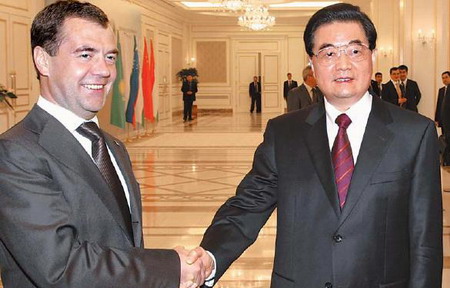Latest News
SCO leaders may make crucial Afghan decisions
By Wu Jiao and Li Xiaokun (China Daily)
Updated: 2010-06-11 08:03
 |
Large Medium Small |
|
|
TASHKENT - Countries surrounding Afghanistan, including China and Russia, are likely to make decisions on Friday that will help ease the situation in the war-torn country, where security has badly deteriorated since the beginning of June, a senior Chinese diplomat said.
SCO leaders are due to exchange views on the Afghan situation at the annual summit on Friday in Tashkent, Uzbekistan and to, hopefully, make decisions that will help contain the situation.
Founded in 2001 in Shanghai, the SCO includes China, Kazakhstan, Kyrgyzstan, Russia, Tajikistan and Uzbekistan. Among observer states are Mongolia, Pakistan, Iran and India.
Afghan President Hamid Karzai has also been invited to attend the meeting.
Russia's drug control chief Viktor Ivanov warned last month in Beijing: "Drugs produced in Afghanistan are flowing to Russia and China, intensifying regional instability, with China's Xinjiang Uyghur autonomous region bearing the brunt of the problem."
After talking with China's top public security officials, he said Russia and China agreed that international forces have proven to be "extremely inefficient in combating drugs".
According to Ivanov, 4.3 tons of heroin flowed into China from Afghanistan in 2009 and the figure rose to 6 tons in the first few months of this year.
China previously ruled out the possibility of sending troops to Afghanistan to take part in the international military effort, saying it would only join UN-approved military actions, said Foreign Ministry spokesman Qin Gang. However, China is willing to assist Afghanistan in forging a peaceful and stable country, he added.
The deteriorating situation in Afghanistan has also been attracting the attention of Western leaders.
British Prime Minister David Cameron surveyed British troops on Thursday in Afghanistan, where he described this year as being vital for post-Taliban Afghanistan and called for more progress in the country plagued by extremism.





